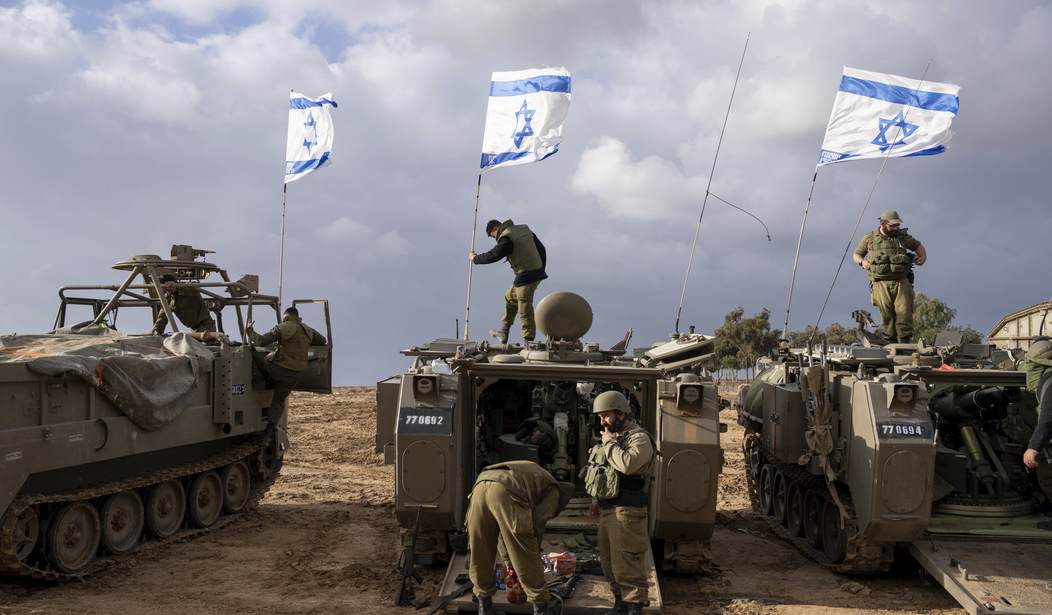It feeds into everything that’s been reported about Israel’s Arab neighbors and why they don’t want Palestinian refugees roaming wild in their country: they bring trouble. The late King Hussein had to declare war on them and successfully drove them out. The problem is the Palestinian Liberation Organization set up shop in Lebanon, where they caused problems for the government while also attacking Israel from the southern part of the country. Israel had to invade in 1982 and remained in Southern Lebanon until 2000. Egypt has closed its border with the Gaza Strip in Rafah due to terrorism concerns.
In the days after the brutal October 7 attacks executed by Hamas, Egypt knew what was going to happen. They deployed tanks to the border while their prime minister vowed that his country would sacrifice millions to keep their borders safe. He was not referring to Israel. So, what’s the latest? Well, Haaretz is reporting that Israel’s Arab neighbors are telling Jerusalem privately that they shouldn’t stop military operations until Hamas has been annihilated. They view them as a domestic threat:
Source: https://t.co/vxOBd0XOgQ
— OSINTdefender (@sentdefender) December 2, 2023
This act of making noise publicly but more reasoned discussion behind the scenes among Arab leaders happened in early November, when they gathered in Riyadh, Saudi Arabia, to discuss the ongoing Gaza War. There was a lot of talking condemnation of Israel, but nothing came of it (via AFP):
The outcome of a joint summit of the Arab League and the Organisation of Islamic Cooperation in the Saudi capital highlighted regional divisions over how to respond to the war even as fears mount that it could draw in other countries.
The summit took place against a backdrop of widespread anger in the Middle East and beyond over Israel's aerial and ground offensive in Gaza, which has killed more than 11,000 people, mostly civilians and many of them children, according to the Hamas-run health ministry.
Israel says it has set out to destroy Hamas following the militant group's bloody October 7 attacks that Israeli officials say killed about 1,200 people, also mostly civilians, and saw about 240 taken hostage.
The final declaration on Saturday rejected Israeli claims that it is acting in "self-defence" and demanded that the United Nations Security Council adopt "a decisive and binding resolution" to halt Israel's "aggression".
It also called for an end to weapons sales to Israel and dismissed any future political resolution to the conflict that would keep Gaza separate from the Israeli-occupied West Bank.
Saudi Arabia's de facto ruler Crown Prince Mohammed bin Salman, who before the war was considering establishing formal diplomatic ties with Israel, told the summit he "holds the occupation (Israeli) authorities responsible for the crimes committed against the Palestinian people".
[…]
Some countries, including Algeria and Lebanon, proposed responding to the devastation in Gaza by threatening to disrupt oil supplies to Israel and its allies as well as severing the economic and diplomatic ties that some Arab League nations have with Israel, the diplomats said.
However, at least three countries -- including the United Arab Emirates and Bahrain, which normalised ties with Israel in 2020 -- rejected the proposal, according to the diplomats who spoke on condition of anonymity.
In a televised address Saturday evening, Israeli Prime Minister Benjamin Netanyahu said Arab leaders "have to stand up against Hamas", which he described as "an integral part of the terror axis led by Iran".
Recommended
Some noted that this summit was a squaring-off between Saudi Arabia’s sphere of influence versus Iran’s. While others pointed to Trump’s fingerprints, namely that countries that signed off on the Abraham Accords rebuffed punitive measures against Israel.
Breaking News! The Arab summit did look nice on video, but here is the DRAMA that actually happened behind the scenes folks, and you may want to sit down for this.
— Tom Nash (@iamtomnash) November 11, 2023
Most participants pushed for a joint statement including 4 points:
(1) prevention from providing military…
Peaceful Arab block is comprised of:
— Cathy Kichler 💎 (@CathyKichler) November 11, 2023
Saudi Arabia - big dog
Egypt, Jordan - long standing agreements w/ Israel
UAE, Bahrain, Morocco, Sudan - Abraham Accords
Now that fighting has resumed between Israel and Hamas, it’s time for the IDF to finish the job against the terror group. And reportedly, it's a campaign that Israel's Arab neighbors hope ends well for the Jewish state. Whether that carries into Lebanon is another story. Israel has not been shy in saying that Hezbollah and southern Lebanon are next on their target list if the UN or the Lebanese Army can't regain control there.

























Join the conversation as a VIP Member